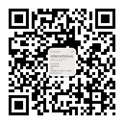| 基金项目: |
|
| 摘要点击次数: 3089 |
| 全文下载次数: 1134 |
| 中文摘要: |
| 目的 针对以问题为基础的学习(problem-based learning, PBL)中存在的学生难以系统建构医学知识体系以及难以将知识迁移用于解决新问题的挑战,利用图示工具支持的在线PBL系统,观察其对医学生临床诊断知识技能发展的影响。方法 将52名学生平均分为实验组(采用有图示工具支持的在线PBL系统学习)和对照组(采用无图示工具支持的在线PBL系统学习)。学生按照学习系统中的要求,在线完成3个肾病临床病例的诊断分析,并就在线学习体验提供反馈意见。对2组学生的病例1和病例3的在线学习成绩分别采用配对t检验和单因素重复测量方差分析。结果 结果显示,实验组有进步[病例1得分(1.47±0.54),病例3得分(2.14±0.55),P=0.015],而对照组无明显进步[病例1得分(1.57±0.67),病例3得分(1.66±0.49),P=0.234]。学生在线学习的前期(病例1)学习表现和组别因素对后期(病例3)学习表现具有交互作用影响(F=7.266, P=0.013)。结论 初步表明图示工具支持的在线PBL学习系统能够有效促进医学生临床诊断知识技能发展。 |
| 英文摘要: |
| Objective In problem-based learning, students are often found difficult to con-struct medical knowledge systematically and transfer knowledge to solve new problems. In face of this challenge, this study aims to investigate the effect of visualization tool-supported online problem-based learning on medical students' clinical diagnostic expertise development. Methods A controlled study was conducted and 52 medical students were randomly assigned into experimental group (using visual-ization tool-supported online PBL environment for learning) and control group (using online PBL envi-ronment for learning without visualization tool support). Participants were asked to complete the diag-nostic analysis of three kidney problems according to the requirements of the learning environments and to provide feedback of online learning experience afterwards. Paired-sample t test and one-way analysis of vonriance were used to analyze both group's case 1 and case 3 on line learing scores. Results The results revealed that the experimental group had significant improvement in online learning performance [case 1: (1.47±0.54), case 3: (2.14±0.55), P=0.015], while the control group had no significant improvement [case 1: (1.57±0.67), case 3: (1.66±0.49), P=0.234]. Early performance of online learning and group factor had interative effects (F=7.266, P =0.013). Conclusions The findings suggest that visualization tool-supported online PBL environment can facilitate medical student clinical diagnostic expertise development effectively. |
|
查看全文 查看/发表评论 下载PDF阅读器 |
|
| 关闭 |
|
|
|
